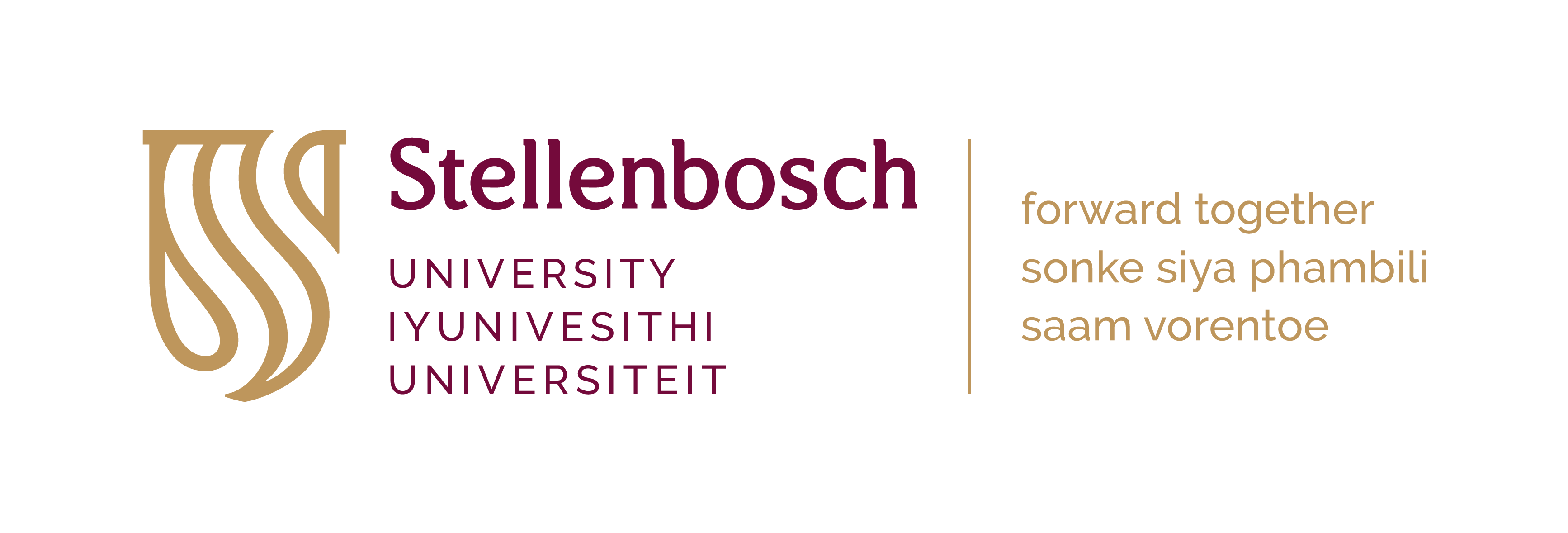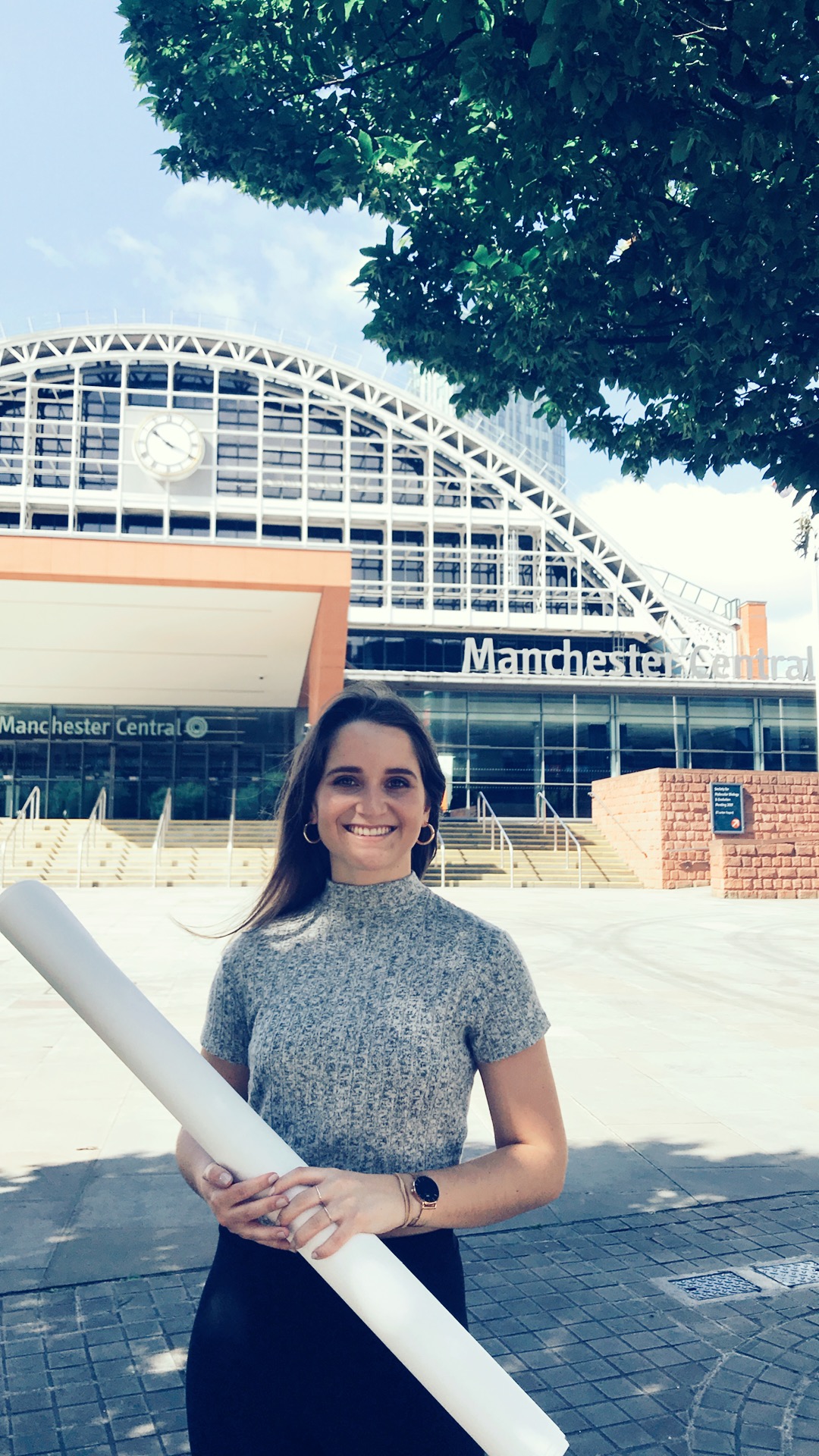Meet Miss Christina (Tina) Meiring, a doctoral candidate within the Animal TB and TB Host Genetics Research Groups at the Stellenbosch University’s Division of Molecular Biology and Human Genetics, Faculty of Medicine and Health Sciences.
In celebration of Youth Month 2020, the Division of Molecular Biology and Human Genetics is paying tribute to young researchers within our institute. We share heart-warming stories of our students whose lives give us great hope for the future of South Africa. We thank these students for volunteering to tell us a little about themselves and their research.
Tell us briefly about your background?
I’m 24 years old and was born in Port Elizabeth in the Eastern Cape. I grew up in a small town, Kirkwood, a few kilometres from PE. My dad is a citrus farmer in Kirkwood and my mom also works on the farm – she keeps everything running. It was absolutely fantastic to grow up on a farm, I loved it. My twin sister and I often go back to visit. We both did BSc, BSc honours and BSc Master’s degrees (not the same) at Stellenbosch University. We are very close, we do everything together. It was a little challenging to study different things initially, but it worked out really well. We both love what we’re doing. I’m very close with my parents as well, they are a fantastic support system.
Why did you choose your field of study – what or who inspired you? Is this what you envisioned for yourself growing up?
I’ve always had an interest in wildlife and conservation. Since I grew up on a farm, I was frequently exposed to wildlife species in different habitats. I’ve also always been fascinated with genetic research. When I discovered that Stellenbosch offered a program where I could combine my interests, I knew that this would be a great journey and that made me decide to choose this field of study. It wasn’t exactly what I envisioned for myself, my interests constantly changed when I was growing up and I wasn’t always aware of all the possibilities. As I was studying and my field became more specialized and specific, it got me where I am now.
What is your research focus on?
My research focuses on investigating the genomic diversity in a population of African wild dogs (Lycaon pictus) from Kruger National Park to aid in the optimization of the current wild dog conservation management strategies. The genomic information generated from this research could then be used to work towards understanding their susceptibility or resistance to diseases (such as Mycobacterium bovis infection) and other threats, and developing tools to identify genetic factors conferring adaptive advantages. I started with this research in January of 2018 for my MSc and I am continuing with it in my PhD.
How can your research help to improve Africa and/or the lives of its people?
The information generated from my research will be used to optimize conservation strategies which will ultimately increase the chances of their long-term survival in the future. African wild dogs are important predators and the loss of this species could lead to decreased biodiversity in key protected areas, therefore it will impact the biodiversity in South Africa. My research will also increase the awareness of the status of the endangered African wild dogs.
What obstacles did you have to overcome to get where you are today?
Throughout my life, I have been compared to my twin sister. It was expected that we should excel in the same things and that wasn’t always the case. It was hard to have the confidence to pursue anything independently, but it definitely made me a better-rounded researcher.
If you could invite any three researchers (alive or dead; local or international) to a dinner party, who would you pick and why?
Sir David Attenborough, because of his substantial contribution to the awareness of climate change and the importance of conservation; and Valery Legasov, as I have a fascination with the Chernobyl Nuclear Power Plant accident and he played a crucial role (as a scientist) in mitigating the consequences of the disaster and figuring out how it happened.
What is your favourite quote/saying?
I have a few:
“Every time we ponder a thought, act on impulse, or dwell on a desire, we are setting in motion a cause that will have a future effect. Mindfulness enables us to choose wisely” – Tamara Levitt
If you can’t be kind, be quiet (not sure who came up with this)
“Step back, allow things to unfold. There’s a beauty to be found in letting things be” – Tamara Levitt
“There is a pleasure in the pathless woods; there is a rapture on the lonely shore; there is a society, where none intrudes, by the deep sea, and music in its roar: I love not man the less, but Nature more…” – Lord Byron
Any advice for young people who are considering a career in STEM?
Always pursue your passion. STEM fields are diverse, challenging, and offer a wide variety of opportunities. You will definitely end up with an exciting career and will have a high level of personal and job satisfaction. It’s not an easy career to pursue, but it will be well worth it. My advice is to never give up and to obtain an education in the STEM field as soon as possible, when you’re still young and full of energy.
What do you hope to achieve in the future?
I hope to obtain my PhD in 2021. I hope to generate valuable information regarding the genetics of endangered species, such as the wild dog, to be implemented in conservation management decisions. In the future, I hope to be able to do this for multiple wildlife species. Additionally, I hope to be part of the conservation management group from the South African National Parks in the future. I hope I also get the opportunity to present my research to other scientists in the world. I had the chance to present my work at a conference in Manchester, UK at the Molecular Biology and Evolution conference, which was a fantastic experience. It will be great to get another opportunity like that.

